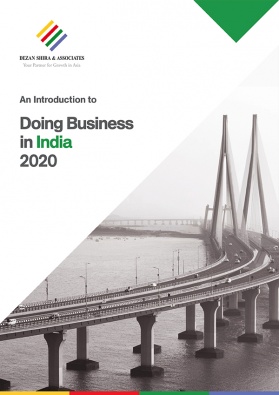Corporate India Cautiously Optimistic in July-September Quarter: CII Business Outlook Survey
Green shoots of recovery are showing in the Indian economy after corporate firms in India expect the normalization of business operations after the end of lockdown to improve overall capacity utilization. Nevertheless, weak market demand during the pandemic will continue to result in declines in profits.
Corporate sentiment appears to have improved in the July-September quarter, as per findings from the Confederation of Indian Industries (CII) business outlook survey.
After recording its lowest reading at 41.0 in April-June 2020, the CII’s Business Confidence Index reached 50.3 for July-September 2020. The survey was conducted between August and September, involving 150 companies across all industry sectors, including micro, small, medium, and large enterprises (MSMEs), from different regions.
The surge in the index in this quarter can be put down to rising expectations after the roll-back of nationwide restrictions during multiple lockdown extensions and the resultant restart of business operations.
This was indicated somewhat in the increase in e-way bills, electricity consumption, payments data, and import duty collection in September. Nevertheless, the rebound is not uniform across all sectors in India as mobility remains low with the public skepticism high over climbing coronavirus cases. Still, increased testing capacity and a return to normal business operations has put the economy on the road to recovery.
India’s business outlook: Key CII survey findings
Nearly half of the CII’s survey respondents anticipate an increase in new orders (49 percent) and sales (46 percent) during the July-September quarter, even though most of them witnessed declines in sales and new orders in the previous quarter. Yet, they expect capacity utilization levels to improve. A major share of the respondents (41 percent) foresee higher utilization levels of 50-75 percent in the July-September quarter; about 37 percent of the respondents even anticipated capacity utilization at 75-100 percent in this quarter.
However, profitability will be harder to achieve during the pandemic and nearly half of the respondents continue to expect declining profits after a majority (76 percent) experienced it in the preceding quarter. (Click here to read the CII’s report.)
Finally, nearly 30 percent of the respondents expressed a bleak outlook – feeling that business activity could return to pre-pandemic levels only by Q1 FY 2022.
In a statement announcing its survey results, the industry chamber said: “With regards to the general economic prospects, more than [a] third of the respondents (35 percent) foresee a contraction higher than 4 percent in India’s GDP in the financial year 2020-21 as the significant setback to economic growth has been further aggravated by state-imposed lockdowns to curb local outbreaks.”
Thus local, often ad hoc, restrictions will likely subdue the revival of domestic demand for the foreseeable future.
Government handholding will be essential
The CII’s Director General Chandrajit Banerjee has been quoted in the media saying that India’s economic recovery would be expedited through government handholding of businesses during the pandemic. For example, any recovery would need the stabilization of the country’s MSMEs through support measures as they confront the brunt of a liquidity crunch, crashed market demand, and impediments by way of local restrictions during spikes of COVID infections. As per the CII’s own estimates, the MSME sector accounts for 33.4 percent of India’s manufacturing output and employs around 111 million people.
The pandemic is certain to reshape economies across the world, for instance, in the nature of work and consumption, and that will require firms to make changes to their current operations structures and business priorities. This, in turn, will require capital and restructuring, with an impact on the labor market, real estate, and fast-moving consumer goods industries, etc.
Just last week, the Centre for Monitoring Indian Economy (CMIE), a private think tank, published findings that showed that around 6.6 million white-collar professionals in India lost their jobs since the COVID lockdown began. Another cohort among the salaried class that has suffered are industrial workers, of whom around 5 million lost their jobs during the lockdown.
The salaried class and MSMEs are among key groups who will be seeking relief from the government – social security measures and fiscal support, respectively. How the government responds to this challenge will push economic recovery in either direction and determine the speed and nature of demand revival. Moreover, as the festival season closes in, businesses will be looking at key opportunities to recoup some of the losses from earlier in the year.
About Us
India Briefing is produced by Dezan Shira & Associates. The firm assists foreign investors throughout Asia from offices across the world, including in Delhi and Mumbai. Readers may write to india@dezshira.com for business support in India.
- Previous Article After IT, Telangana Wants to be India’s Electric Vehicles Hub
- Next Article India’s Taxpayers, FPI, Offshore Investors Promised Relief: Parliament Passes New Bill








